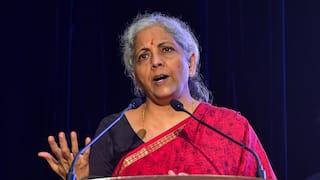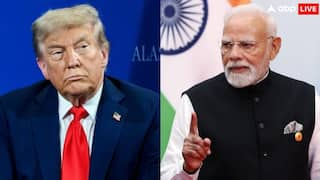Is Elon Musk's $1-Million US Election Giveaway Legal? Experts, Politicians Show Concern
Musk defended by pointing to past Democratic efforts, suggesting they have used similar strategies. He referenced Mark Zuckerberg’s $400 million donation during the 2020 election to support logistics.

Concerns are mounting over the legality of cash rewards (of up to $1 million) tech mogul Elon Musk is offering to voters in key swing states who sign his petition before the US election on November 5. Musk’s campaign group, America PAC, set up to back Donald Trump’s presidential bid, is spearheading this initiative, as reported by BBC.
Pennsylvania voters are reportedly being enticed with monetary rewards simply for signing, with one random signer from any swing state receiving a daily million-dollar prize. However, legal experts argue that offering cash for actions involving voter registration could violate US law. Musk’s team and America PAC have not yet commented on the issue.
What Is Musk Offering?
The petition promoted by America PAC targets voters in six swing states: Georgia, Nevada, Arizona, Michigan, Wisconsin, and North Carolina, urging support for free speech and gun rights. Participants receive $47 for each referred signer, with Pennsylvania voters offered even higher sums — $100 per referral. A $1 million daily prize is also being awarded to one random signer from these states.
The campaign is framed as support for the First and Second Amendments of the US Constitution. The first $1 million prize was reportedly handed out at a Pennsylvania town hall event on October 19.
Legal Uncertainty
Paul Schiff Berman, a legal expert from George Washington University, believes Musk's offer could violate federal laws prohibiting payments for voter registration or voting. The US Code on electoral law includes penalties of up to $10,000 or five years in prison for such violations. Berman emphasised that because the offer targets registered voters, it likely crosses a legal boundary.
The Department of Justice and Federal Election Commission (FEC) have not yet issued statements on the matter, but experts are divided. Some, like former FEC Chairman Brad Smith, argue the giveaway might fall into a legal grey area, since the payments are tied to signing a petition rather than voting itself.
Meanwhile, other legal scholars, like Northwestern University's Michael Kang, suggest the scheme is problematic because it seems designed to encourage voter registration, which could bring legal challenges.
ALSO READ: X Updates Privacy Policy, To Let Third-Party Collaborators Train Their AI Models On Users' Posts
Political Reactions
Pennsylvania Governor Josh Shapiro, a Democrat, called for an investigation into the matter, expressing serious concern over Musk's move. In response, Musk dismissed the criticism as unfounded.
Billionaire Mark Cuban, a Kamala Harris supporter, weighed in, calling the incentive "innovative but desperate," acknowledging the sweepstakes tactic as clever, though not without risk.
Comparing To Past Campaigns
Musk defended his actions by pointing to past Democratic efforts, suggesting they have used similar strategies. He referenced Meta CEO Mark Zuckerberg’s $400 million donation during the 2020 election to support election logistics. However, unlike Musk's effort, this money was not directed to voters but to non-partisan organisations to manage mail-in ballots.
Historically, political campaigns have funded voter registration drives, but legal experts say the direct payment to voters for signing petitions could pose legal challenges.
Musk’s Political Involvement
Musk, once at odds with Trump, has become more politically engaged in recent years, vocalising his dissatisfaction with the Democratic Party. He launched America PAC in July with a $75 million donation, aiming to support Trump’s 2024 campaign. The PAC advocates for policies like secure borders and free speech.
Trump, while acknowledging Musk as a friend, said he had not been following the billionaire’s voter incentive program closely, reported BBC.





































